Medicinal tea is a method of drinking that uses medicine in combination with tea leaves or as a substitute for tea. Medicinal tea therapy is a valuable heritage of traditional Chinese medicine, with advantages such as being economical, practical, convenient, effective, and without side effects. Especially for elderly and weak patients with chronic diseases or difficulty taking medication, taking appropriate medicinal tea can achieve good results.
1. Heatstroke prevention tea: 6 grams of tea leaves, 9 grams each of patchouli and patchouli, decocted with water as a substitute for tea. Used for preventing and treating heatstroke. 250 grams of fresh lotus root, washed and sliced, boiled with ginger and sugar to make a decoction as a substitute for tea. Used for preventing heatstroke. 1-2 fresh lotus leaves, decocted to make a tea. Used for preventing heatstroke and has the effects of reducing blood lipids and cholesterol. 9 grams of goji berries, 12 grams of vinegar-fried schisandra, 6 grams each of peppermint and chamomile flowers, brewed with boiling water as a substitute for tea. It is used to treat pathogenic heat in the five viscera, relieve heat-induced headache and thirst. It has the functions of nourishing the liver and kidneys, improving hearing and vision, strengthening tendons and bones, nourishing essence and strengthening the mind. It is especially suitable for those who have poor appetite and are thin during the summer and suffer from "complex summer" (bitter summer) syndrome.
2. Hypotensive tea: 9 grams each of bitter tea, chamomile flowers, mulberry leaves, white cogon grass roots, and hook vines, decocted to make a tea. It has the effects of clearing heat, reducing dizziness, and lowering blood pressure. It can be used for hypertension, headache, dizziness, bitter taste in the mouth, and dry throat. 1.5 grams of lotus seed core, 9 grams of cassia seed, brewed with boiling water as a substitute for tea. Used for hypertension, dizziness, restlessness, etc. 15 grams of watermelon rind (dried), 9 grams of cassia seed, decocted to make a tea. Used for prevention and treatment of hypertension.
3. Dizziness-clearing tea: 9 grams each of alisma and white atractylodes, 5 lotus leaf stems, 6 grams of chrysanthemum flowers, and 3 grams of patchouli leaves, brewed to make a tea. It has the functions of resolving phlegm and eliminating dampness, and is used for dizziness, vomiting of phlegm and saliva (obstruction of phlegm and dampness), and heavy body and head.
4. Nephritis tea: appropriate amount of corn silk, winter melon peel (dried), and red adzuki beans, decocted to make a tea. Used as an adjuvant treatment for edema and acute and chronic nephritis patients.
5. Orange-red tea: 1 piece of dried orange-red, 4.5 grams of green tea, brewed with boiling water, then steamed in a boiling water pot for 20 minutes, and used as a substitute for tea. This formula has the effects of relieving cough and resolving phlegm. It is used for cough with excessive phlegm in the elderly that is sticky and difficult to expectorate.
6. Persimmon leaf tea: Fresh persimmon leaves picked in June and July are washed and scalded in boiling water for about 10 minutes, then removed and dried in a shaded place or dried in a pot with gentle heat. When drinking, add tea leaves and brew together. It has a slightly sweet and fragrant taste. Drinking it regularly has certain effects on hemophilia, hypertension, and hyperlipidemia. It also has sedative, diuretic, and anti-swelling effects. Because it contains rich vitamin C and ingredients such as rutin and choline, it is a beverage that is commonly consumed year-round for lowering blood pressure, reducing blood lipids, treating hemophilia, and arteriosclerosis.




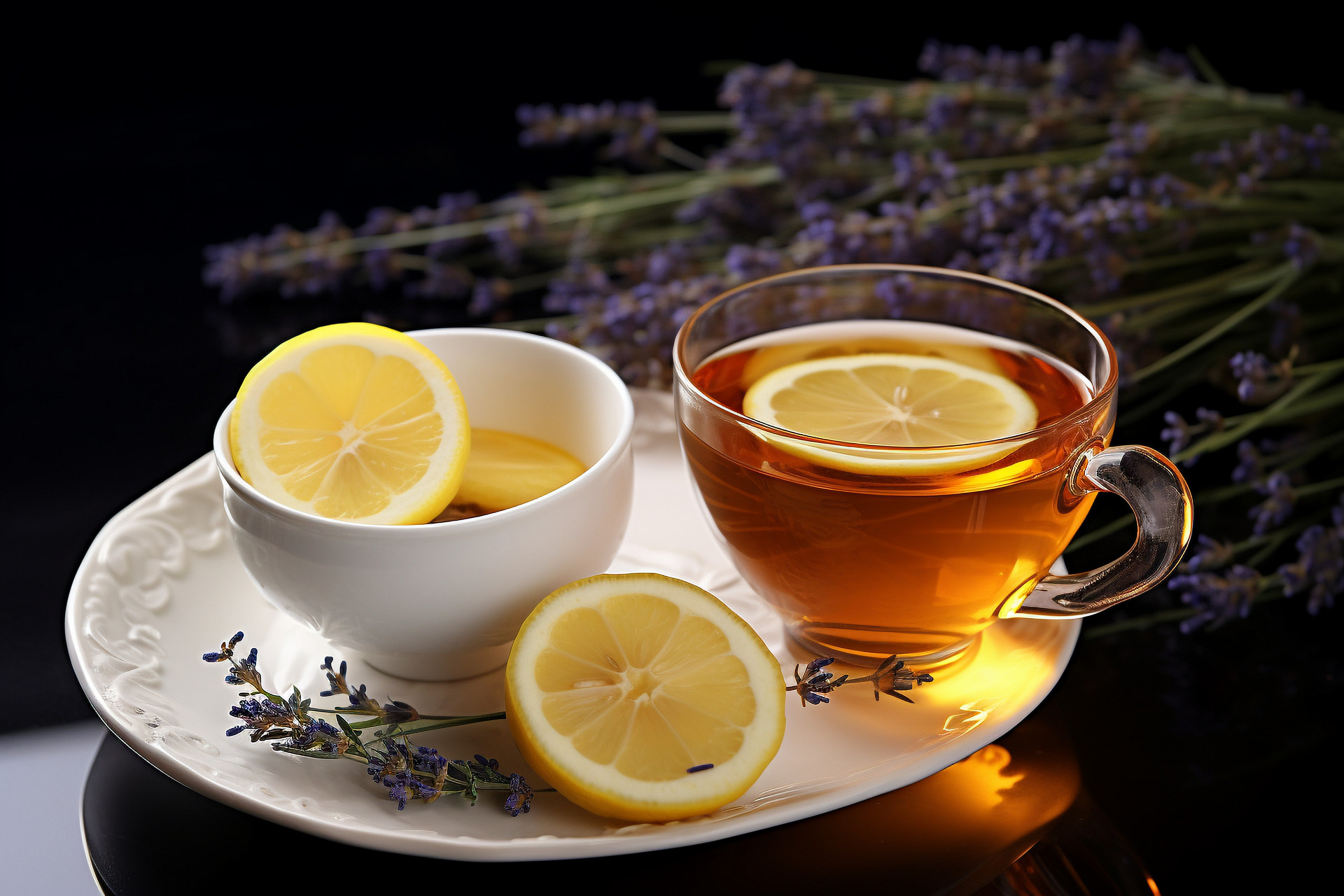
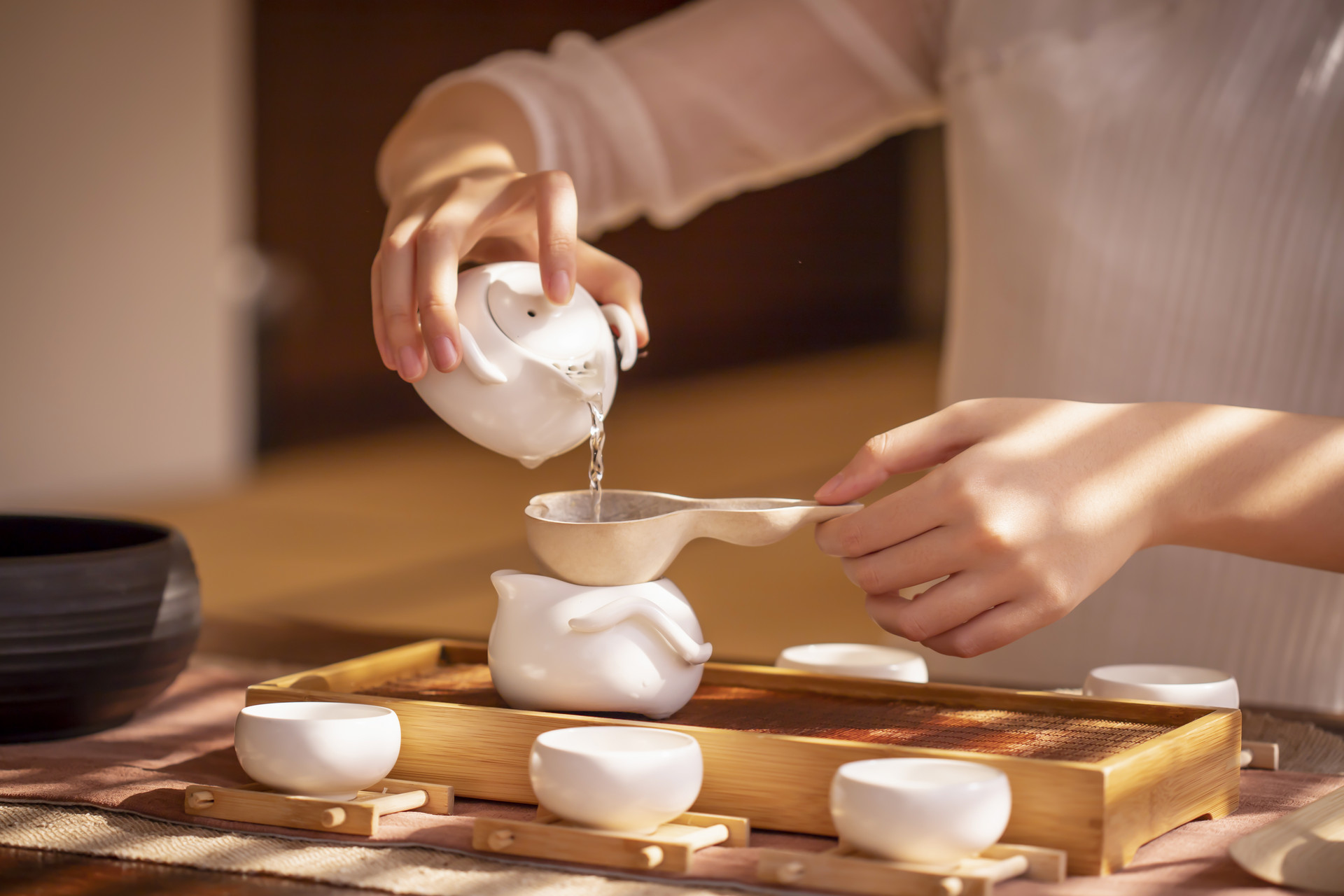
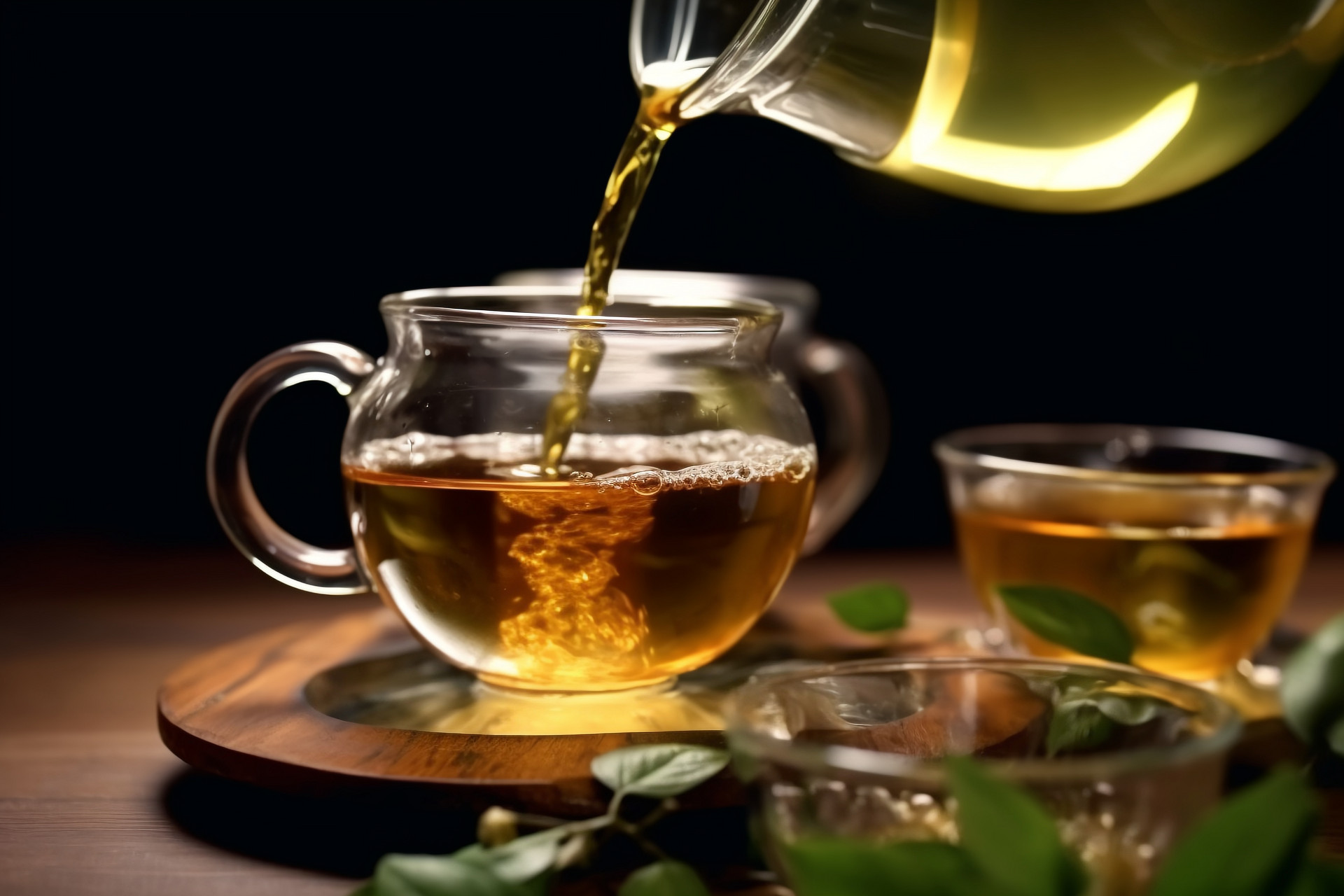

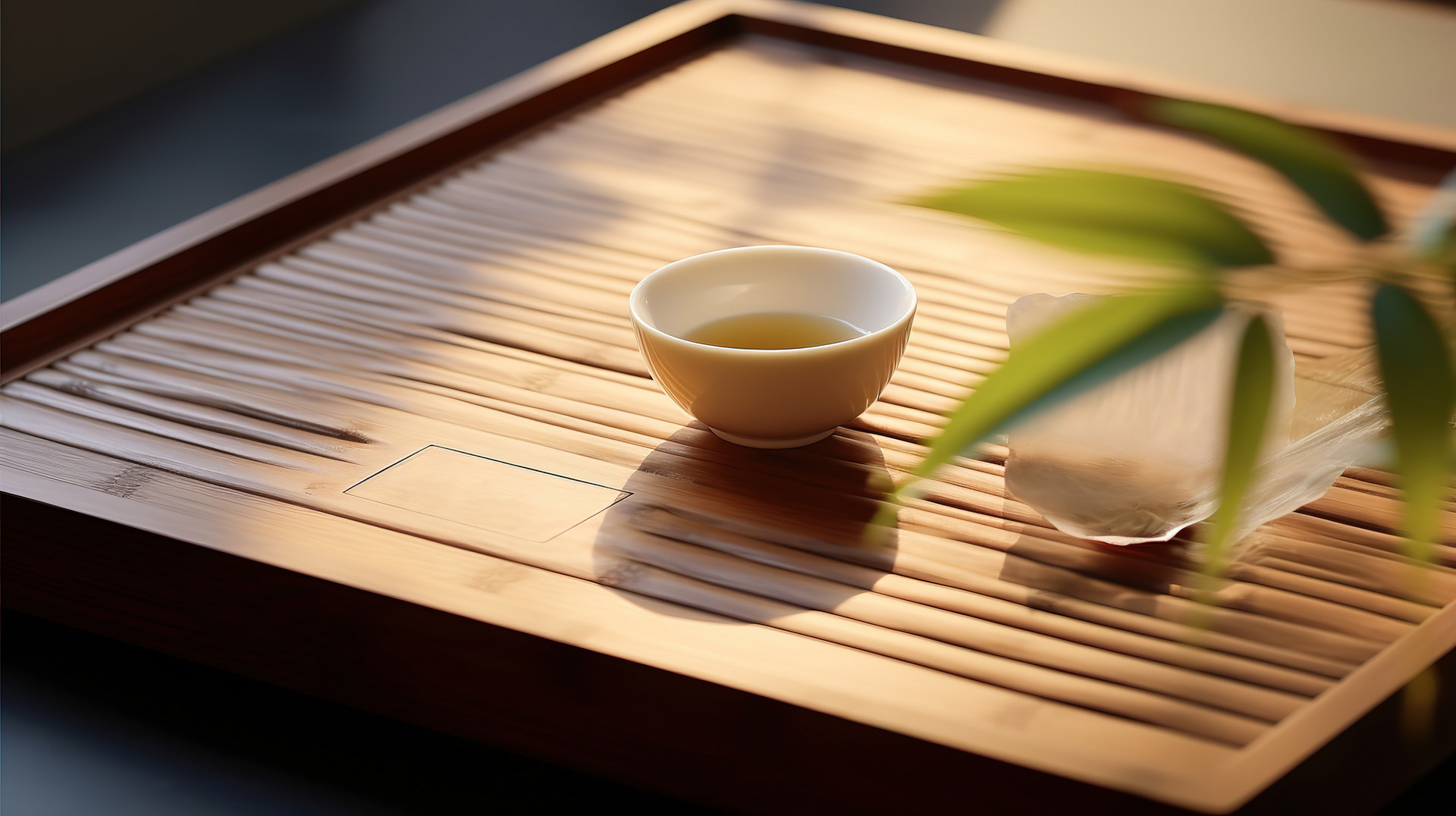
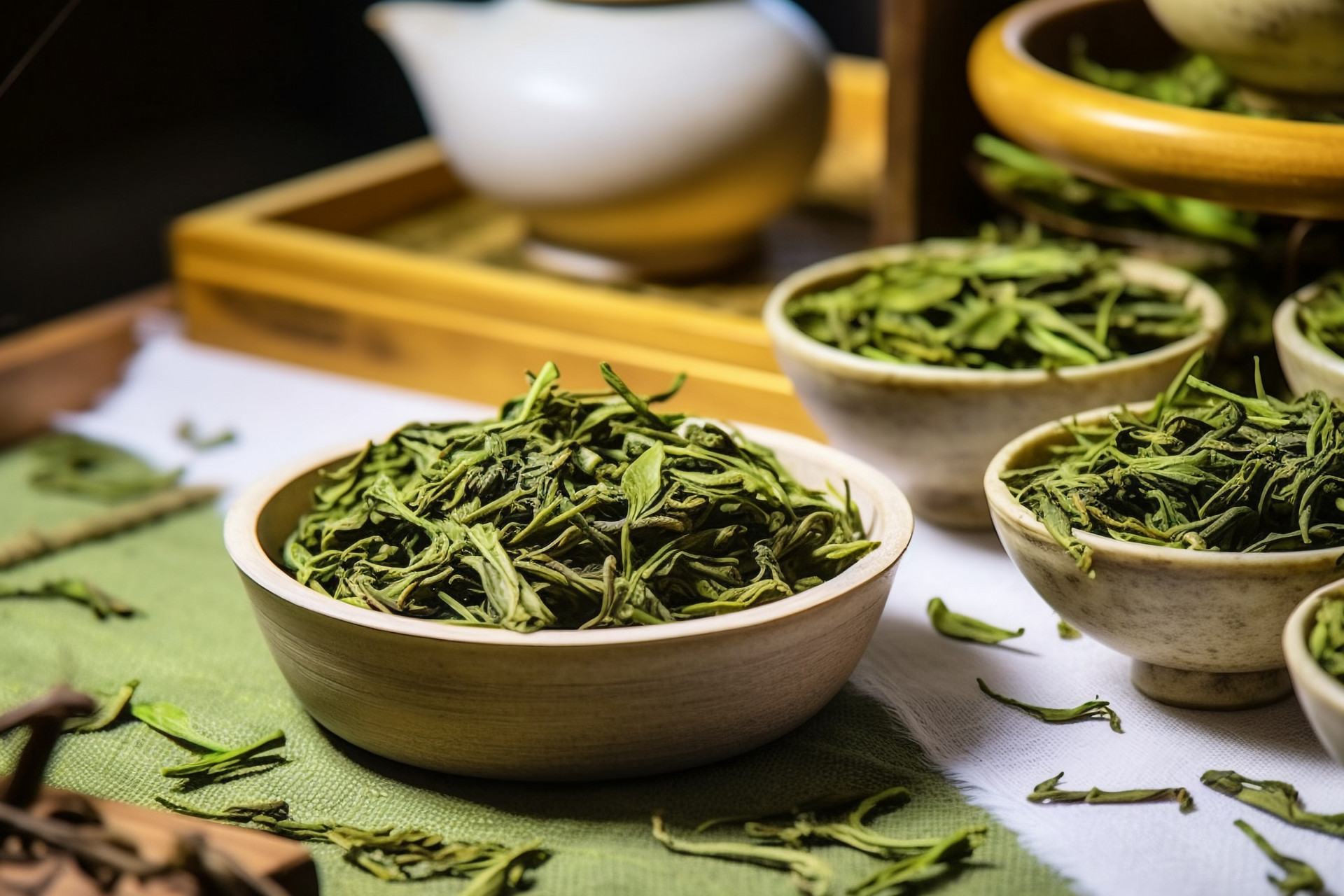
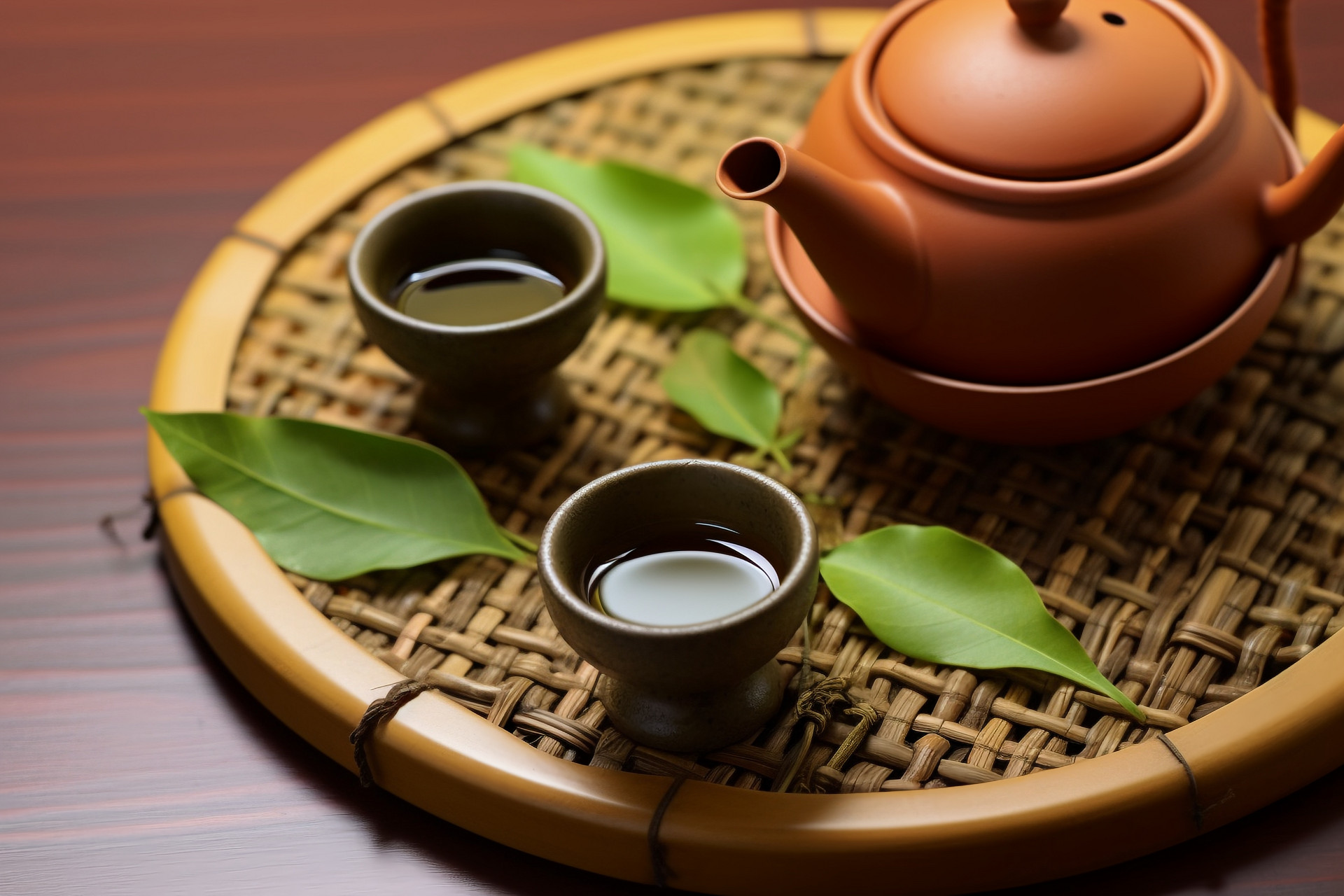
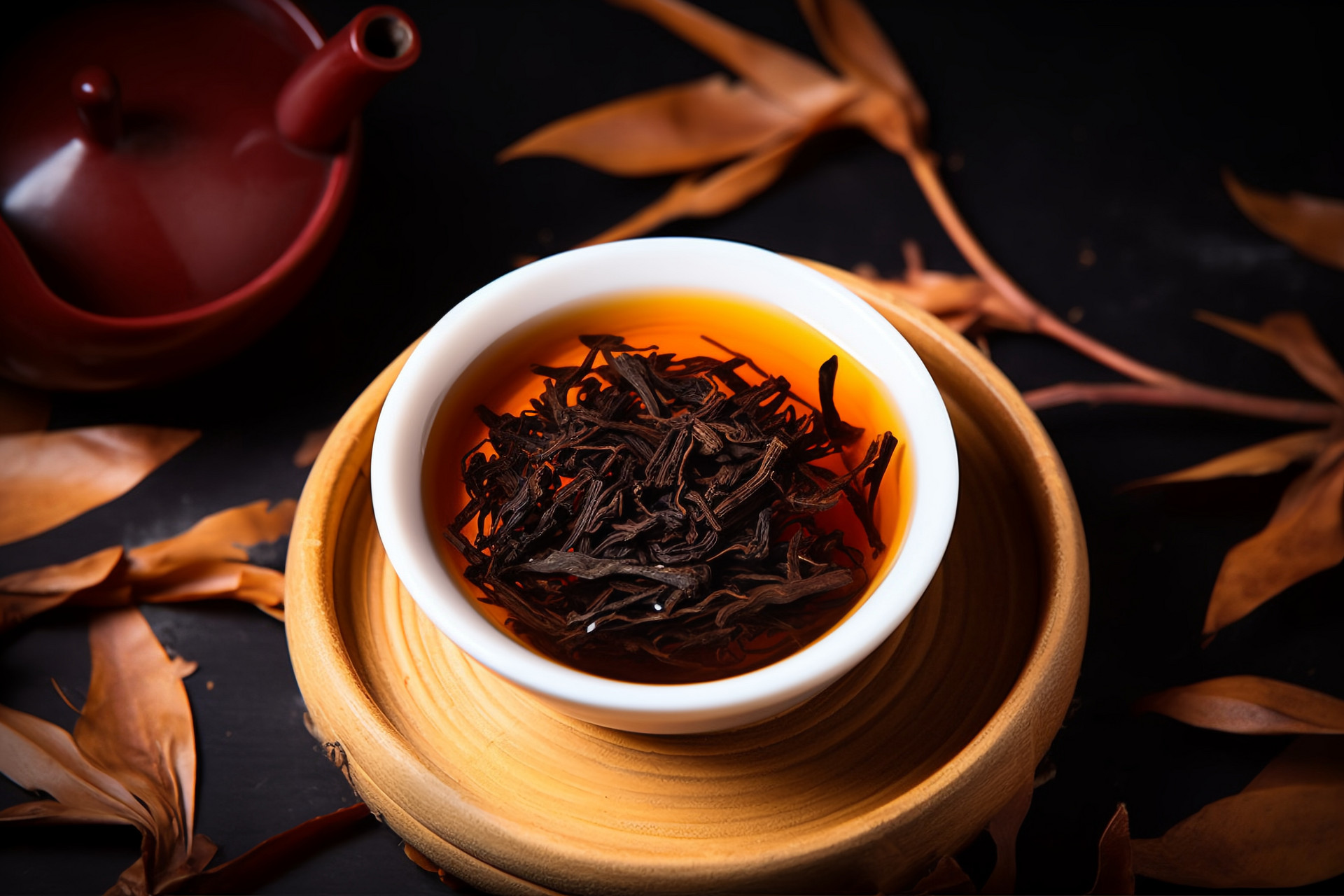
![[Herbal Wine Recipes for Health and Beauty]](https://tcmmaintenance.com/uploads/20240715/7241f6b6eafdaed88c28b26a37213964.jpg)